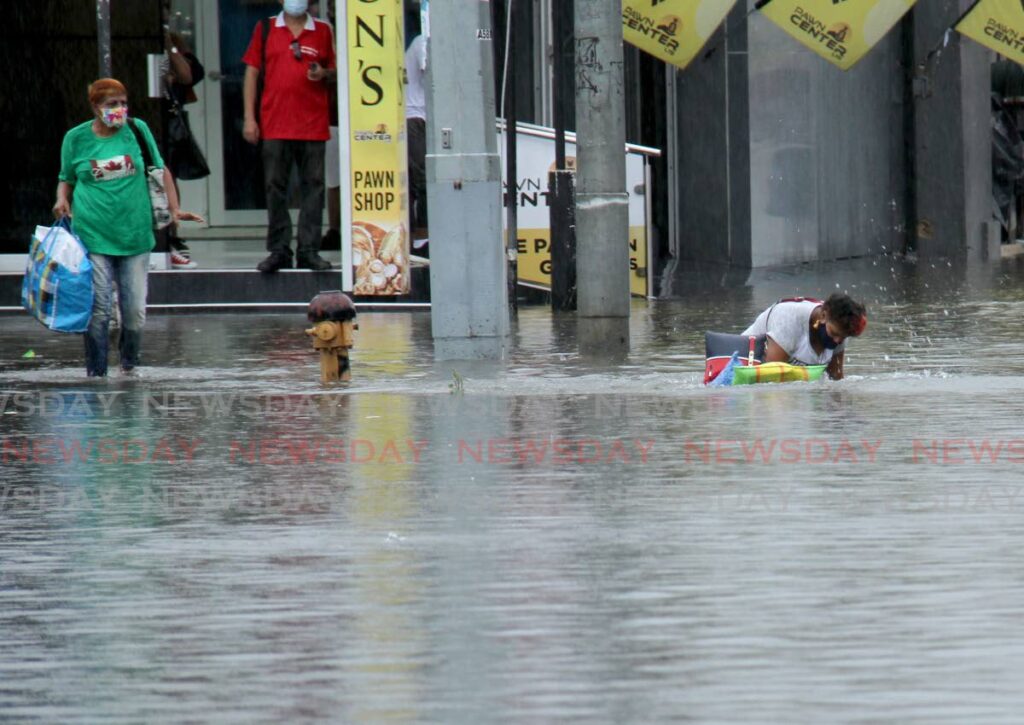Private sector key to developing disaster resilience

Private-sector involvement is essential to building resilience to natural disasters in the Caribbean. This was the prevailing message at the Business and Community Resilience Co-Creation Event put on by Unicef and the Caribbean Disaster Emergency Management Agency at the Radisson Hotel on Thursday.
Office of Disaster Preparedness and Management (ODPM) CEO ret’d Maj Gen Rodney Smart, in his opening remarks, said the organisation had begun collaborating with the local business community through several initiatives. These included a continuity workshop in partnership with the American Chamber of Commerce (Amcham) to be able to create more risk-resilient businesses which can recover quickly from disasters.
“The ODPM welcomes the drive and enthusiasm of the private sector in improving the capacity of our nation, and by extension our region. This sector is key to disaster-risk reduction in driving national and regional support to help our Caribbean neighbours after disasters.”
He said the organisation continues to embrace a whole-of-society approach and is in the process of refining a national comprehensive disaster management policy, and an implementation plan, the country work plan, for which it received support from CDEMA.
“This key policy and plan will provide the strategic direction for the implementation of the Sendai Framework for Disaster Risk Reduction 2015-2030. The framework, which was adopted by Trinidad and Tobago in full in 2020, is the global blueprint for risk reduction and management. This process will allow the ODPM and all our stakeholders to recommend to the government a new strategic direction for disaster management, leading to the updating of existing legislation, thereby strengthening the collective capacity of all sectors, inclusive of our private sector.”
The keynote address was delivered by executive director of Dominica’s Association of Industry and Commerce, Lizra Fabien, who is leader of the Disaster Risk Reduction Pillar of Caricham, a network of chambers of commerce in the Caribbean.
She said the private sector is an engine of growth and a great contributor to sustaining livelihoods, taxes for governments, support for civil society and programmes for community development. She outlined three key lessons she had learned.
“The first one is that risks are different: there are many types of risks, and they affect us all.
"The second lesson is that the private sector is not homogenous, and has various needs and capacities, and faces different challenges. Micro-, small-, and medium-enterprises account for 50-75 per cent of our private sector in different countries, and operate in different sectors.
"The third lesson is that building of resilience takes an all-of-society approach. It takes a community to build resilience. If after national disasters, only governments contributed to rebuilding countries, would we be where we are today? Governments, citizens, civil-society organisations, academia, and the private sector all have roles to play in sustainable development outcome."
Fabien said there needed to be partnership between governments, the private sector and civil-society organisations to build resilience.
“We partner to generate smarter policies, to protect our environments and communities, while enabling businesses. We partner for knowledge-sharing, spreading of best practices and accelerating of innovations, as well as for targeted advocacy.”
She shared several ways of partnership, ranging from passive to active. These included information dissemination, public events and training campaigns, open networks and discussions, multi-stakeholder forums, and partnerships, alliances and transactions.

Comments
"Private sector key to developing disaster resilience"